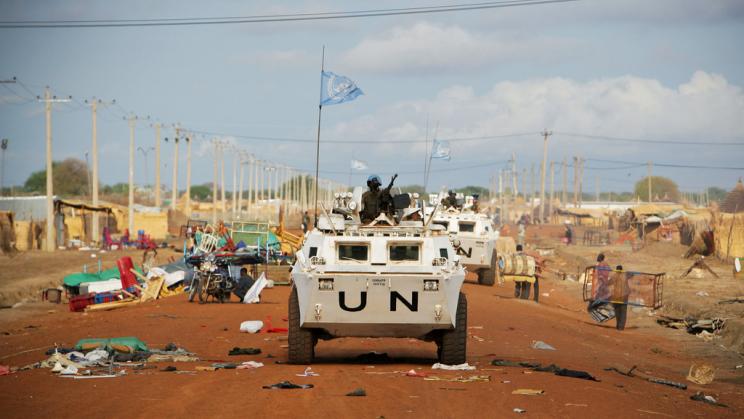New geopolitics of peace operations: Non-traditional security challenges
The New Geopolitics of Peace Operations III: Non-traditional Security Challenges initiative aims to enhance understanding about United Nations and non-UN peace operations and their role in dealing with non-traditional security challenges, specifically, terrorism and violent extremism, irregular migration, piracy, organized crime and environmental degradation.
One of the key findings of the second phase of the New Geopolitics of Peace Operations initiative was that peace operations are increasingly likely to face non-traditional security challenges in the near and medium-term future, either by choice or by necessity. This raises many questions, including the following: are contemporary peace operations fit for purpose? What challenges and opportunities will they be presented with? How should they relate to, or cooperate and coordinate with, other relevant actors that are dealing with these challenges in the field?
The third phase of the initiative seeks to identify the various perceptions, positions and interests of the relevant stakeholders, as well as to stimulate open dialogue, cooperation and mutual understanding between them. It aims to do so by engaging key stakeholders and by mapping the policy space for the potential role of peace operations with respect to non-traditional security challenges.
To accomplish these aims, SIPRI will co-convene a series of five dialogue meetings with key stakeholders, each on a specific non-traditional security challenge. SIPRI will publish a background paper in advance of each meeting that will set the baseline for the discussions. Based on the outcomes of the dialogue meetings, the initiative concludes with a final report aimed at moving the discussion forward.
The project was launched with support from the Finnish Ministry for Foreign Affairs, and in continued partnership with the Friedrich-Ebert-Stiftung (FES).
